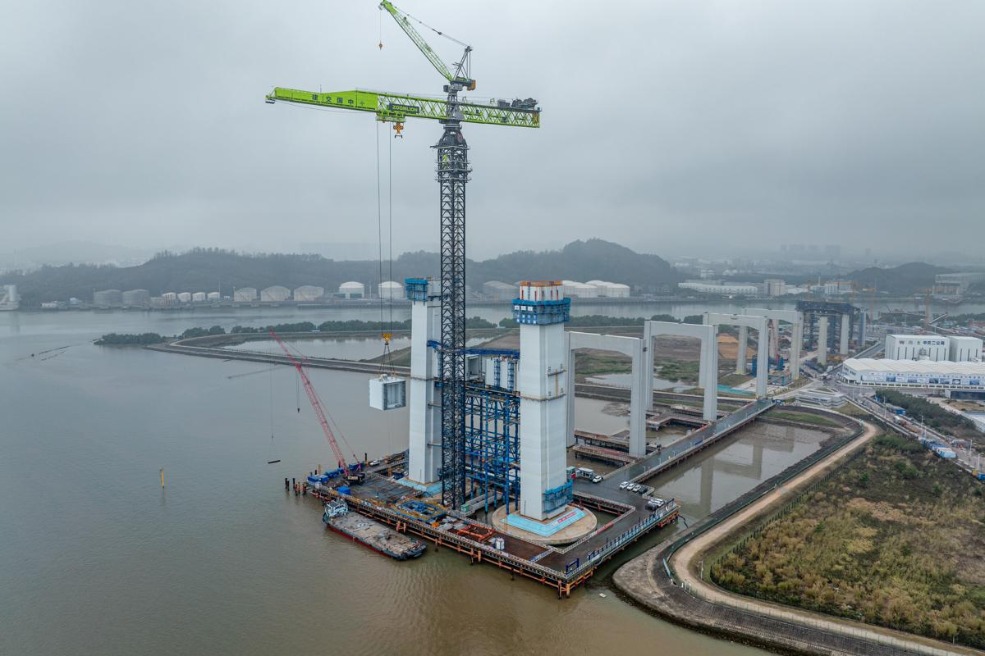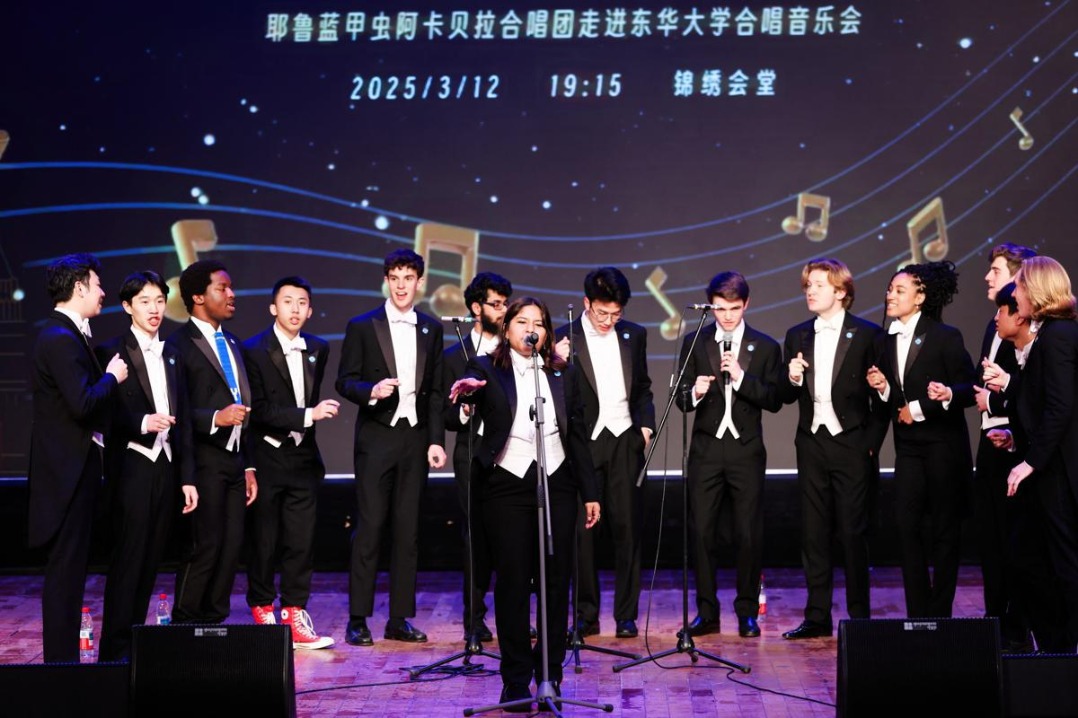Nation's first C-14 nuclear battery developed in Gansu

Chinese researchers have developed the country's first carbon-14 nuclear battery, marking a milestone in the research and development of micro-nuclear battery technologies.
According to a news release from Northwest Normal University in Gansu province's capital of Lanzhou, researchers from the university and Wuxi Beita Pharmatech, a private nuclear medicine company in Jiangsu province, have jointly made the world's first model of silicon-carbide semiconductor-based C-14 nuclear battery.
Named "Zhulong" after a mythical creature symbolizing light in Chinese classic Shan Hai Jing, this nuclear battery uses energy from the decay of high-specific-activity C-14, a radioactive isotope with a half-life of 5,730 years, to generate electricity.
The half-life of a radioactive isotope is the amount of time it takes for one-half of the radioactive isotope to decay.
As C-14 decays, it emits beta particles that interact with the siliconcarbide semiconductor, producing a steady flow of electrons. The device is expected to have a century-long operational lifespan, which means it can provide long-lasting power supply to polar and deep-sea exploration as well as aircraft and spacecraft.
It features full intellectual property covering core materials and energy conversion components and boasts zero emission, according to the university.
The battery demonstrates a short-circuit current of 282 nanoamps, open-circuit voltage of 2.1 volts and maximum output power of 433 nanowatts, achieving an eight-percent energy conversion efficiency.
When integrated with energy storage modules, it successfully powered a Bluetooth radio-frequency chip for signal transmission and reception. An LED light using Zhulong 1 as source of power has operated continuously for nearly four months, completing over 35,000 pulse flashes, the release said.
Taking advantage of the 5,730-year half-life of C-14, the battery offers theoretical service life spanning millennia and can withstand extreme temperatures from — 100 C to 200 C. It also boasts an energy density 10 times higher than commercial lithium-ion batteries.
Professor Su Maogen, leader of the battery's research team at Northwest Normal University, said the device can act as permanent energy sources for medical implants like brain-computer interfaces and pacemakers; sensors in the internet of things; and polar and deep-sea explorers, lunar probes and Martian rovers.
His team is currently working with Wuxi Beta Pharmatech in developing the second-generation prototype "Zhulong 2" with fully enclosed C-14 micro-nuclear cells, and plans to start testing of the new model by year-end.
- Nation's first C-14 nuclear battery developed in Gansu
- Top court acts to protect consumer rights
- China unveils measures to counter drone interference with civil flights
- Fake love, real estate: Shenzhen women mislead men into home purchases
- Shiziyang Bridge installs first steel beam in key step
- China to host SCO military meeting





































